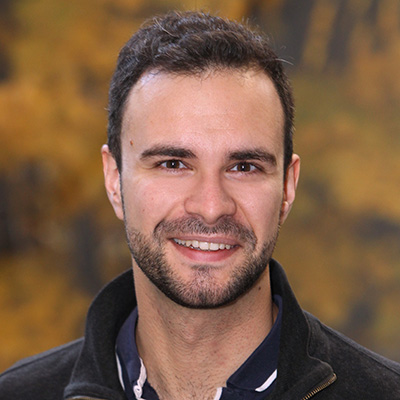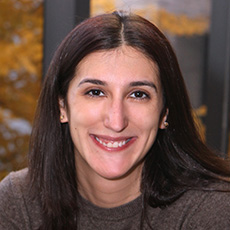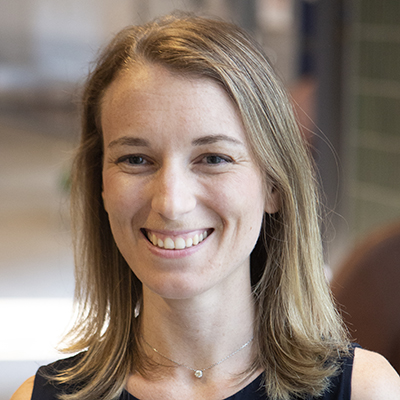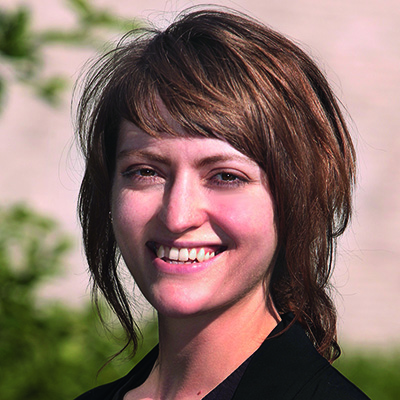New Light: Rising Stars in Energy and the Environment spotlights a diverse selection of researchers across disciplines working on cutting-edge approaches to solve society’s most pressing problems in energy and the environment. This year, two hybrid seminars will be held in Maeder 103, with two speakers giving 20-minute presentations on each date.
Wednesday, July 13
12:00 p.m. – 1:30 p.m.

Fernando Temprano-Coleto
Transport processes in modern environmental challenges
Temprano-Coleto earned his Ph.D. in Mechanical Engineering in 2021 from the University of California Santa Barbara. His doctoral research focused on the effect of surfactants on the performance of superhydrophobic surfaces, coatings designed to reduce fluid drag and improve the energy efficiency in areas such as maritime transportation or pipeline hydraulics. As a Distinguished Postdoctoral Fellow at the Andlinger Center for Energy and the Environment, Temprano-Coleto is working with Professors Howard Stone, Sujit Datta, and Jason Ren to develop techniques based on diffusiophoresis for the manipulation of colloids. These methods are targeted towards the characterization of microplastics, as well as their efficient remediation from natural water.

Holly Caggiano
Building coalitions for renewable energy futures
Caggiano earned her Ph.D. from the Edward J. Bloustein School of Planning and Public Policy at Rutgers University. Her dissertation research, chaired by Drs. Rachael Shwom and Cara Cuite, explored social-behavioral drivers of household resource consumption at the food-energy-water nexus. As a Distinguished Postdoctoral Fellow at the Andlinger Center for Energy and the Environment, Caggiano is working under the mentorship of professors Elke Weber and Chris Greig to identify pathways for cross-partisan public support for large-scale renewable energy deployment projects in key communities in the U.S. Motivated by ACEE’s Rapid Switch research effort and Net-Zero America study, this research contributes to deep decarbonization efforts to mitigate global climate change.
Wednesday, July 20
12:00 p.m. – 1:30 p.m.

Julie Euvrard
Organic solar technologies: How does molecular arrangement determine the fate of charge transport?
Euvrard is a Distinguished Postdoctoral Fellow at the Andlinger Center for Energy and the Environment, working with professors Prof. Barry Rand and Prof. Antoine Kahn in the department of Electrical and Computer Engineering. Her research focuses on emerging semiconducting materials for solar energy applications, including perovskites and organic semiconductors. In particular, Euvrard is using advanced Hall and carrier-resolved photo-Hall techniques, new and powerful tools that hold promise to rapidly access fundamental properties of materials for use in energy harvesting devices. Prior to her current position, Euvrard was a postdoctoral associate in the group of Prof. David Mitzi at Duke University, focusing on perovskite materials for photovoltaic applications. Euvrard earned a PhD at CEA Grenoble, France, and University Lille I, France, where she studied electrical doping in organic semiconductors.

Allyson McGaughey
Scalable polymer brushes: new materials for water and resource recovery
McGaughey earned her Ph.D. in environmental engineering in 2020 from the University of Southern California, where she studied membrane separation processes for wastewater reuse and desalination. Her doctoral research focused on the relationships between material properties and performance for membrane distillation, a separation process that is promising for resource recovery from high-salinity waste streams.
As a Distinguished Postdoctoral Fellow at the Andlinger Center for Energy and the Environment, McGaughey is working with professors Rodney Priestley and Z. Jason Ren to develop advanced polymer materials for resource recovery and water treatment processes, including robust antifouling materials that can improve performance and reduce energy consumption.
